Posts

Can my SMSF invest in property development?
Australians love property. The lure of a 15% preferential tax rate on income during the accumulation phase, and potentially no tax during retirement, is enticing for SMSF trustees. It encourages them to pursue the dream of large returns…
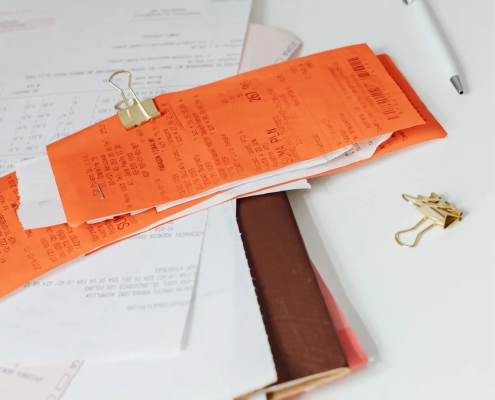
A summary of all business tax changes this year
Employers & business
Superannuation guarantee increases to 11% from 10.5%
National and Award minimum wage increases take effect.
The minimum salary that must be paid to a sponsored employee - the Temporary Skilled Migration…

$3 million+ Super balance nest eggs will get their tax doubled
The Government has announced that from 2025‑26, the 15% concessional tax rate applied to future earnings for superannuation balances above $3 million will increase to 30%.
In a very quick turnaround from announcement to draft legislation,…

Super to be paid per paycheck and pursuable if owed
As announced in the 2023 May Budget, from 1 July 2026, employers will be required to pay their employees’ super guarantee entitlements on the same day that they pay salary and wages. Currently, super guarantee is paid quarterly. The Government…

Slower asset write offs, some tweaks & changes to tax, and more money for ATO compliance!
Last year we had a double deal of government budgets, and without even coming full circle yet, it's time for this year's budget.
https://vimeo.com/825343630
Businesses have limitations and compliance warnings to be aware of,…

Australian super funds gorge on cryptocurrency
The value of cryptocurrency assets inside Australian self managed superannuation funds (SMSFs) increased by 589.9% ($1.17bn) between June 2019 and June 2022, according to the latest ATO statistics.
While cryptocurrency is a relatively small…

EOFY Super deadline is approaching
We'd like to have your attention about superannuation payments prior to EOFY.
Although not necessary, you have the option of:
paying employee super one month early
topping up extra super into your own fund
Both will give you a…

What’s changing on 1st July 2022?
FOR BUSINESS
Superannuation guarantee increase to 10.5%
The Superannuation Guarantee (SG) rate will rise from 10% to 10.5% on 1 July 2022 and will continue to increase by 0.5% each year until it reaches 12% on 1 July 2025.
If you have…

What is Div 293?
What is Division 293?
Division 293 is an additional tax on high income wage earners in Australia.
This tax is payable if you exceed the Division 293 income threshold and have taxable super contributions in a given income year.
What is the…

Superannuation change from July 2022
There is a new employee superannuation change coming into effect from 1st July 2022.
All employees now need to receive super
On 11 May 2021, as part of the 2021–22 federal Budget, the Australian Government announced it will remove the…

What is a Stapled Super Fund?
There's a change to superannuation that means to comply with 'choice of fund' rules you might need to do something extra when a new employee starts to work for you.
Previously, if a new employee doesn't choose their own super…

Divorce, Super & the Gender Divide
New legislation will help prevent superannuation assets from being hidden during divorce proceedings.
From 1 April 2022, the Australian Taxation Office (ATO) will be able to release details of an individual’s superannuation information…

1st July 2021 changes
We’ve summarised the key 1st July 2021 changes and their implications.
Most of them relate to superannuation:
Super guarantee rate increase to 10%
On 1 July 2021, the Superannuation Guarantee (SG) rate will rise from 9.5% to 10% -…

Your SMSF: when expenses and investments are not at arm’s-length
We often get questions from clients about what they can and cannot do in their SMSF.
Often the questions relate to related party transactions – that is, interactions between the SMSF, its assets, and its members (or relatives of members).…

SMSF member limit to rise
While it’s not yet in force, the limit on SMSF member numbers is set to increase from the current four to six members later this year.
For some Self Managed Super Funds (SMSFs), this will be a welcome change and will mean additional…

Should you start an SMSF?
For many people, the idea of managing and investing your own retirement savings is very appealing.
But there is debate over whether running your own self-managed super fund (SMSF) is cost effective. So, what are the arguments for and against…

The 1 July 2021 superannuation changes
Changes from 1 July 2021 will impact on how much money you can contribute to superannuation and how much you can have in your retirement phase superannuation account.
In general, your superannuation is either in an accumulation account…

2020 year in review
Just as we were recovering from the long drought and the worst bushfires on record, the global coronavirus pandemic took hold and changed everything.
Suddenly, simple things we took for granted, like going to the office or celebrating…

Tax-effective ways to boost your super
After a year when the average superannuation balance fell slightly or, at best, moved sideways, the summer holidays could be a good opportunity to think about ways to rebuild your savings while being mindful of tax.
With the Reserve Bank…
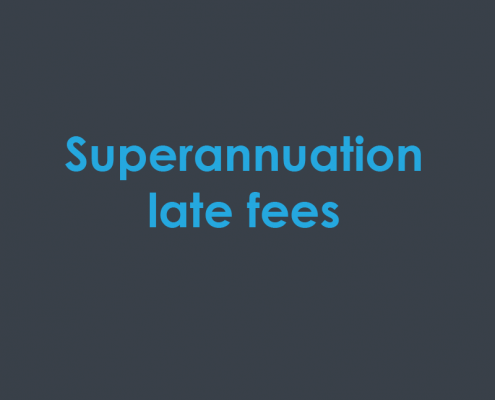
What happens if you don’t pay your super on time?
In the past, monitoring of superannuation payments was not as stringent as it is now. If employees did not regularly read their super statements or check their balances, it is entirely possible that super could go unpaid - and unnoticed by the…
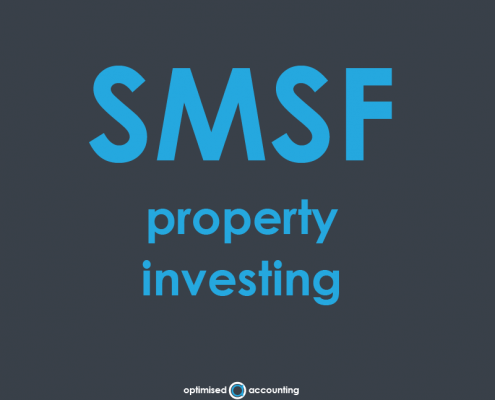
The ins and outs of SMSF property investing
With a property market recovery underway, most notably in Sydney and Melbourne, Australian investors are once again pursuing their love affair with property investing.
For many investors, a popular way to invest directly in residential…
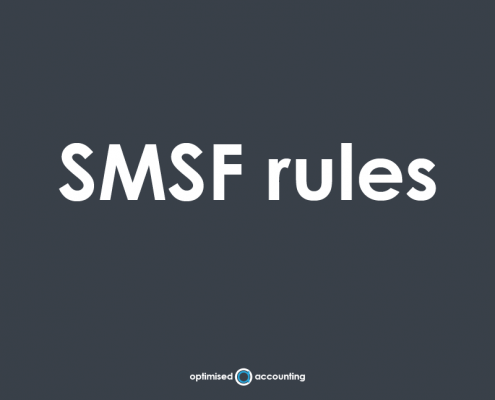
5 key SMSF rules
The lure of greater control over your retirement savings with a self-managed super fund may be enticing but the freedom to chart your own destiny also comes with the responsibility to comply with the rules.
An SMSF is a private super…
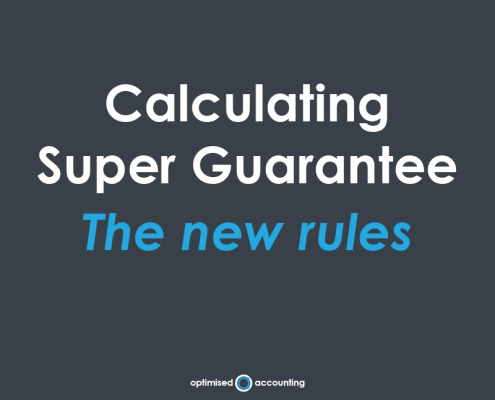
Calculating Super Guarantee: The new rules
From 1 July 2020, new rules will come into effect to ensure that an employee’s salary sacrifice contributions cannot be used to reduce the amount of superannuation guarantee (SG) paid by the employer.
Under current rules, some employers…
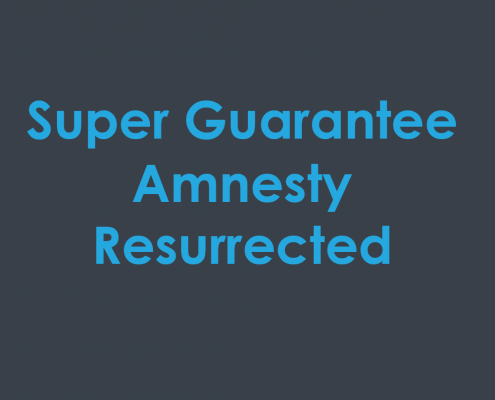
Super Guarantee Amnesty Resurrected
The Government has resurrected the Superannuation Guarantee (SG) amnesty giving employers that have fallen behind with their SG obligations the ability to “self-correct.” This time however, the incentive of the amnesty is strengthened by…

SMSF trustees being contacted by ATO
The investment strategies of Self Managed Superannuation Funds (SMSFs) are under scrutiny with the Australian Taxation Office (ATO) contacting 17,700 trustees about a lack of asset diversity.
The ATO is concerned that, “a lack of diversification…

1st July changes: what you need to know
As of 1st July 2019 there were some changes that came into affect. This includes:
Insurance inside Superannuation funds
We let you know the tax tip-offs from the ATO
Laundry expenses are going to be reviewed
Who owns the assets…

Could you benefit from salary sacrificing?
Keen for a new laptop, car, or even an airport lounge membership? Sick of putting your hand in your pocket for school fees, the rent or your mortgage? All of these things could be paid for through a salary sacrifice arrangement.
With…

Using your super fund to save for your first home
For most first home buyers, the property market can seem like a tough nut to crack. But today we’ll look at a new super scheme that makes it a whole lot easier to save for a deposit.
Heard of the First Home Super Saver (FHSS) scheme?
No?…

Improve your finances one month at a time with this 2018 to-do list
It’s easy to get overwhelmed with a long list of tasks, so we’ve simplified things for you. Just tackle one job on this list each month and you’ll make a huge difference to your finances in 2018.
January: Create a monthly family budget…
